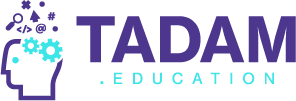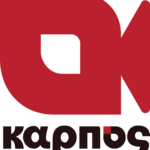THE PROJECT
OUR OBJECTIVES
TADAM aims to bring together the sectors of media education, research, the media industry, teaching… and anyone else interested in the issue.
The TADAM project will take place in several major stages. Firstly, a major cross-perspective seminar will be held on 12 and 13 June 2024 in Louvain-la-Neuve, Belgium. The aim will be to identify the specific issues on which the project will focus, to give direction to the avenues of reflection and to define the most appropriate methodology for the subsequent stages.
This will be followed by a major decentralised, cross-sectoral phase involving workshops in each partner country: Belgium, France, Italy, Greece, Finland, Montenegro, Macedonia and elsewhere in Europe. The idea is to be able to collect all the best practices, local resources and innovative ideas that can respond to the challenges posed by the use of AI and algorithms in the information process, including disinformation.
With the aim of creating a community and rapidly exchanging good ideas from all over Europe, the TADAM project will offer an online workspace for collecting results, pooling resources and working together. Online meetings will also be set up for this purpose.
Finally, at the end of 2025, the project will culminate in a transnational event in the form of a creative MediaEdukathon. This major training event will be dedicated to educators, teachers, journalism trainers, etc. wishing to train and co-design together inspiring activities and the outlines of future educational resources to address the issue of the impact, both positive and negative, of AI and algorithms in the overall information process – from production to reception.
THE PARTNERSHIP
General contact: info@tadam.education
Media Animation is a non-profit organisation and the media education resource centre for the Belgium French-speaking Community. It is recognized and subsidised by the Ministry of Education and Ministry of Culture. It is also a centre for vocational training and a lifelong learning education centre for adults. Media Animation was founded in 1972. It was granted crucial funding to implement research, information, training and educational publication and resources in media education. Media Animation mission is to support operators in the field of education, culture and social work along two complementary action lines: 1. Consultancy, audiovisual and multimedia production: professional production support to operators in the cultural and educational fields. 2. Media and multimedia literacy : raising awareness with political and educational stakeholders, training teachers and educational mediators (social workers, educators etc.), publishing pedagogical resources, setting up research actions, etc.
UCLouvain have a strong expertise in digital skills evaluation and algorithmic literacy ; The Knowledge Mediation Research Group (GReMS) of UCLouvain has to its credit several projects related to algorithmic education (e.g. ALG-OPINION, “In the Skin of an Algorithm”) which have led to the development of tools and collaborations with partners in Belgium for the implementation of awareness-raising workshops for trainers and the general public. In addition, he is currently working closely with the Louvain School of Journalism on issues of accountability and journalistic and information practices in the age of AI and algorithms. The Knowledge Mediation Research Group is behind several scientific events and a biennial Doctoral Summer School dedicated to research in Digital/Media/Information Literacy. UCLouvain co-organises a Master in Media Education with a High School in Brussels (IHECS).
University of Florence (UNIFI) has a strong expertise in new technologies for education as well as in digital and Artificial Intelligence (AI) literacy; in particular, the UNIFI team has developed a conceptual framework to develop critical awareness towards AI as well as research tools to evaluate needs and perceptions on the impact of AI on the society. From this point of view, UNIFI will contribute to the project by providing conceptual and methodological tools to be adapted to the needs of the project. Moreover, UNIFI has a long experience in teacher training and education in the field of media and digital literacy. UNIFI will bring to the project its expertise to the development of the training activities on AI literacy.
Tampere University (TAU) holds the expertise in communication having the largest research unit of public communication and journalism in Finland at the Faculty of Information Technologies and Communication Sciences (ITC). Moreover, the research covers digital literacies, information retrieval, game research (Centre of Excellence in Game Culture Studies) and information and records management. TAU has expertise in hackathons including SomeJam for youth, @SomeJamFi. Recently, TAU has participated in several EU Horizon projects including, CORE: A knowledge base on Children & Youth in the Digital Age https://core-evidence.eu/. From these perspectives TAU contributes to the project in communicating and disseminating the produced tools and frameworks throughout the timeline of the project.
KARPOS was founded by three experienced professionals who believe that audiovisual media and new technologies through constructed hands-on group work, encourage creativity and support the exchange of ideas. With 15 years experience in Media Literacy and Audiovisual Productions, KARPOS develops local and European programs (Erasmus+ KA2, KA3, CERV) developing narratives and tools for how media can be introduced in formal and non formal educational environments. Karpos uses all aspects of digital media to empower young and adult citizens, including vulnerable groups, and provide them with powerful communication skills. So far over 4000 teachers and professionals as well as 6000 youth have been trained. Karpos will bring its expertise in Media Literacy to the project and the experience in training on non-formal environments.
University Paul Valery Montpellier (UPVM) has a strong expertise in three fields of social research: Media and Information Literacy with special interests in developing data and algorithm literacy and with a critical thinking perspective; information processes and practices, especially in the health field (HIV, Covid-19, chlordecone pollution…); digital transformations of media and journalism with focus on social media break and on confidence process. These three fields are overviewed by a strong attention to active learning and an analysis of knowledge mediation. Their team regularly implements educational activities like marathon, serious game, role play, physical data workshop with students and practitioners from public and private organizations.
The Institute of Communication Studies (ICS) from Skopje is implementing multiyear projects to combat disinformation in Macedonia. As a leading research organization, ICS is conducting action research to uncover harmful narratives in political discourse and in media in Macedonia. In addition, through its web platforms, ICS works on national and regional investigative stories that reveal the abuse of power and information. It also organizes training for vulnerable groups, senior citizens, and youth to help them develop skills for recognizing disinformation and manipulative media content. Furthermore, ICS implements national public interest campaigns in cooperation with national media outlets, focused on raising awareness and building resilience to disinformation.T
The International Federation of Journalists (IFJ) speaks on behalf of 180 unions/associations of journalists across the world representing 600 000 journalists. It defends social justice and decent working conditions for all media workers. The Federation, which is the largest organisation of journalists worldwide, recognises that artificial intelligence has huge potential to benefit journalism. Without sufficient regulation, and the prior agreement of those its impacts, however, AI has the potential to negatively affect jobs, journalistic ethics, and authors’ rights, as well as exacerbating unfair bias. The IFJ’s involvement in the consortium is essential to voice the concerns of media workers and ensure quality information and jobs are enhanced and not undermined by AI developments. The Federation will ensure the active involvement of its members in the project’s activities.
The International association of Media Education (IAME) strongly supports the project implementation across Europe through its network. This partner is a keyplayer for targeting more distant associations or territories in its role of communicating about events and activities and disseminating the main results.

#TadamEdu
info@tadam.education

Funded by the European Union. Views and opinions expressed are however those of the author(s) only and do not necessarily reflect those of the European Union or the European Education and Culture Executive Agency (EACEA). Neither the European Union nor EACEA can be held responsible for them.









